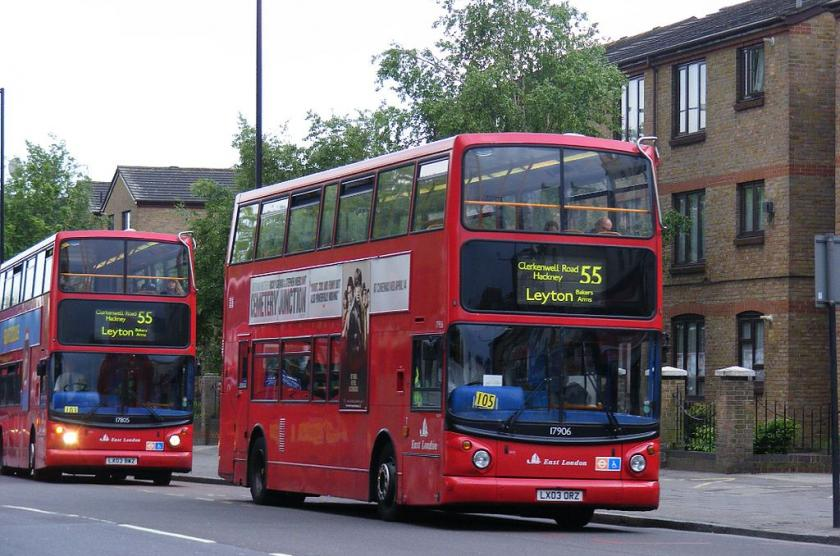
Waiting for the Housing Buses
This week the Government showed their hand on rough sleeping and social housing.
In what could be described as a sensible series of coordinated announcements, the Government has released both its Rough Sleeping Strategy, (to tackle one of the most extreme manifestations of the housing crisis) followed the very next day by the long awaited Social Housing Green paper. This is designed to ensure that “social housing can act as a stable base and support social mobility.”
Such rapid announcements, in the middle of Parliament’s summer recess and the holiday season, could perhaps be described as simply “putting-it-out-because-they-said-they-would-but-they-don’t-really-want–too-much-fall-out-and-by-the-time–everyone-is-back-this-will-all-be-chip-paper”. Personally, I think that would be too cynical, as both announcements are too important. Those who will want to hold the Government to account for delivery and action will be reading the fine print, keeping the discussion going long into the autumn and winter.
The other analogy is of course the classic ‘you wait ages for a meaningful housing announcement to come out of Government (other than the normal, regular and frequent change of Housing Minister) and then two come along at once!’
Sticking with that analogy – one might then go on to say “and the first bus you find is already full of previous announcements, the money is already in the system, and then you realise the second one will be stopping before your stop and not going to its final destination!”
So to explain, I believe the Rough Sleeping Strategy is a good statement of intent. The recognition of the need to address prevention, intervention and recovery is helpful. However, as quickly became apparent, the strategy itself carried no new money beyond what we had already been told about.
At Commonweal, I have said for many years that there is no single solution to homelessness. What is needed is a range of options meeting specific needs of individuals at different stages of their own journey. A fixed pathway that everyone must follow, promotes the risk of institutionalisation and treating individuals as commodities. That pathway may work brilliantly for one, or some, but rarely for everyone. At Commonweal we will continue to work with front line organisations such as Praxis Community Projects, Solace Women’s Aid, Thames Reach and the 999 Club, to do what we can to help support them explore new innovative options and solutions such as the Rhea Project, the Pods and Peer Landlord Supportive Shared Housing.
 In terms of the much-delayed Social Housing Green Paper, it stops short of its destination, because of the limited focus on addressing the fundamental shortfall in supply of new homes; especially more new social rented homes. The Government’s focus on home ownership and shared ownership remains as strong as ever and the ongoing deliberate confusion around the phrase “affordable housing” continues. Affordable housing at 80% market rents or shared ownership sales where households need incomes 3 or 4 times national average wages are not – in my general understanding – affordable. Comparing affordability to the price of something that is exorbitant, does not justify something’s own affordability!
In terms of the much-delayed Social Housing Green Paper, it stops short of its destination, because of the limited focus on addressing the fundamental shortfall in supply of new homes; especially more new social rented homes. The Government’s focus on home ownership and shared ownership remains as strong as ever and the ongoing deliberate confusion around the phrase “affordable housing” continues. Affordable housing at 80% market rents or shared ownership sales where households need incomes 3 or 4 times national average wages are not – in my general understanding – affordable. Comparing affordability to the price of something that is exorbitant, does not justify something’s own affordability!
I also remain concerned that any drive to achieve the giddy heights of 300,000 new homes being built each year, reliant upon either private house builders or, increasingly, housing associations cross subsidising production from outright sales or shared ownership, will simply not happen. Any business model dependent upon profit from sale of a scarce resource will of course limit supply to market, maximising demand and increasing profits. Isn’t that basic economics? For housing associations and councils whose business model depends upon rental income from these homes, there is clear advantage to building them quicker to generate rental flow soonest or have I missed the point? Achieving the sorts of numbers needed to meet housing demand, regularly year after year, requires capital subsidy – secure, known and predictable grant funding whether for councils, or housing associations. Without that supply of social housing (or as Government prefers – affordable homes) the market will always be lumpy and dependent upon sales conditions.
To overwork the bus analogy – I will get on this second bus because at least it is heading vaguely in the direction I want to go and there is no other bus coming along behind that I can see. But how I will get to my final destination, I have no idea!
Ashley Horsey
August 2018
Tagged: commonweal housing, Commonweal Housing CEO, Commonweal update, government, green paper, rough sleeping, social housing
